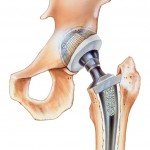Medical Devices: May the Buyer Beware

Do we really know what we are getting when we buy that loaf of bread or piece of furniture? Sure we can look at labels and be told the quality of what we are buying, but how do we really know that what we are being told is what we are actually getting for ourselves and loved ones. If it is a piece of furniture that we later learn we paid too much for, well, we often chalk it up as a life lesson, hoping to be smarter next time. However, this same experience is not just limited to buying some food or furnishing, but also to items that can greatly affect our health. This is the case with medical devices, such as the DePuy Hip Implant, manufactured by Johnson and Johnson for those patients who need a hip replacement due to impairment and pain that conservative treatment cannot alleviate. When we agree to have medical devices, such as a DePuy Hip Implant, be placed in our bodies, we are being told that the device is safe and will not cause harm to us. However, two particular devices – the DePuy ASR and DePuy Pinnacle – have been shown to be defective causing significant pain and even producing toxic metal levels in the bloodstream and body. Often the problems do not become apparent until many months after their implantation, but early detection helps avoid the possible development of toxicity in the body and less physical pain and impairment. Where the implant fails, a second surgery is needed to remove the defective hip and replace it with, hopefully, another hip that is not defective and will function as it should. So, whether it’s buying the loaf of bread, a piece of furniture, or even a complex medical device made by an established pharmaceutical and medical device manufacturer, we always have to be vigilant to ensure that we are not harmed or damaged, most importantly where our health and lives are at stake.

